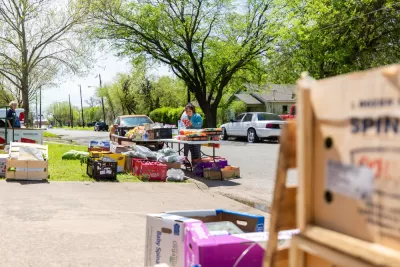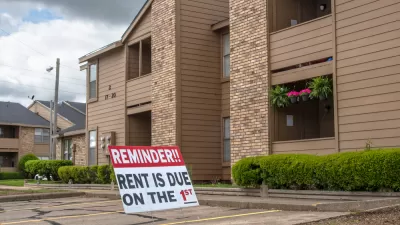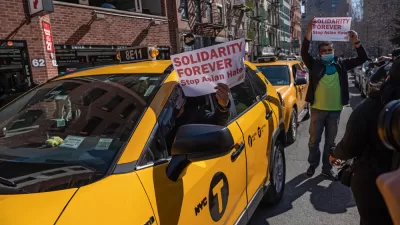A new report details how policymakers and community leaders can improve California's efforts to advance an equitable recovery from COVID by supporting and empowering community-based organizations in underserved communities.

The COVID-19 crisis continues to inequitably affect Californians who live in underserved communities. These residents are still experiencing the highest COVID-19 case rates and disproportionate economic impacts related to the ongoing crisis: outcomes that directly result from systemic racism and continued divestment.
Since the start of the pandemic, community-based organizations (CBOs) across California have stepped up to provide resources and services to those most in need. Specifically, CBOs have delivered food aid, housing assistance, personal protective equipment, translation services, vaccinations, and a variety of other indispensable supports to the communities they serve.
A new report, titled "How California’s Community-Based Organizations Filled the Gaps for Underserved Communities: Meeting the Needs of Racially & Ethnically Diverse Communities During the Pandemic," shows how policymakers and community leaders can improve California's efforts to advance an equitable recovery by supporting and empowering CBOs in underserved communities. This report was developed by the California Pan-Ethnic Health Network (CPEHN), ChangeLab Solutions, and Prevention Institute and includes contributions from 21 CBOs from throughout California.
Besides discussing the systemic inequities that underlie disparities in COVID-19 case and death rates, the report also documents the specific ways that CBOs have served and risen to the occasion during the pandemic. The report concludes with key recommendations for California policymakers and community leaders on a variety of topics and policy areas.
FULL STORY: How California’s Community-Based Organizations Filled the Gaps for Underserved Communities

Study: Maui’s Plan to Convert Vacation Rentals to Long-Term Housing Could Cause Nearly $1 Billion Economic Loss
The plan would reduce visitor accommodation by 25,% resulting in 1,900 jobs lost.

North Texas Transit Leaders Tout Benefits of TOD for Growing Region
At a summit focused on transit-oriented development, policymakers discussed how North Texas’ expanded light rail system can serve as a tool for economic growth.

Alabama: Trump Terminates Settlements for Black Communities Harmed By Raw Sewage
Trump deemed the landmark civil rights agreement “illegal DEI and environmental justice policy.”

How Community Science Connects People, Parks, and Biodiversity
Community science engages people of all backgrounds in documenting local biodiversity, strengthening connections to nature, and contributing to global efforts like the City Nature Challenge to build a more inclusive and resilient future.

Alabama: Trump Terminates Settlements for Black Communities Harmed By Raw Sewage
Trump deemed the landmark civil rights agreement “illegal DEI and environmental justice policy.”

Dear Tesla Driver: “It’s not You, It’s Him.”
Amidst a booming bumper sticker industry, one writer offers solace to those asking, “Does this car make me look fascist?”
Urban Design for Planners 1: Software Tools
This six-course series explores essential urban design concepts using open source software and equips planners with the tools they need to participate fully in the urban design process.
Planning for Universal Design
Learn the tools for implementing Universal Design in planning regulations.
City of Santa Clarita
Ascent Environmental
Institute for Housing and Urban Development Studies (IHS)
City of Grandview
Harvard GSD Executive Education
Toledo-Lucas County Plan Commissions
Salt Lake City
NYU Wagner Graduate School of Public Service





























